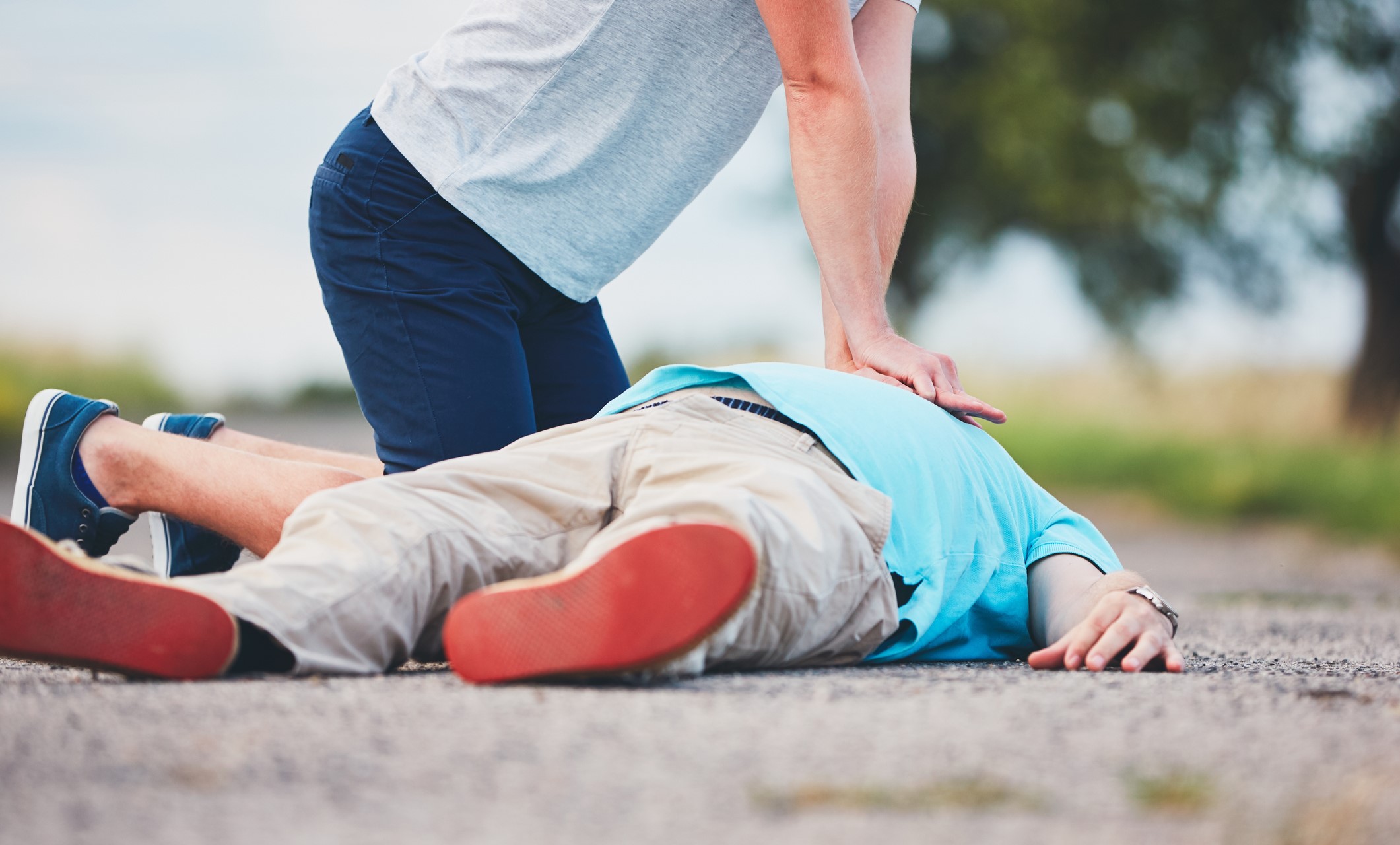Everyone should be trained to give First Aid

I recently read an article about the necessity that all Secondary school students be trained in giving First Aid. If only!
Ideally, however, First Aid should not be a subject that is taught in class like other subjects. I think that, however well it is taught, the subject will remain just another subject on the curriculum for the students.
If First Aid, however, is introduced to Secondary school students in a relaxed environment, it will be appreciated better and be better understood.
In the article I read, a question was raised regarding whether the students should be taught to give CPR, that is, giving breath and doing compressions on the heart of a person who has lost consciousness and whose heart has stopped beating. First Aid experts say that CPR should be given as a last resort. When one is trained in First Aid, one will know that individuals who need assistance are not likely to reach the stage where they need it. However, there are cases where CPR is given when a person’s heart stops beating. A person who knows what is happening to the body will know how the person who is ill or injured will react.
Ġemma Sirol, the Commissioner of St. John Ambulance, spoke to Voice of the Workers and said that “whoever teaches the students needs to be very good at what they do and able to pass on the right message.” CPR is a technical part of First Aid and one needs to know why one is doing it and be able to do it quickly without wasting time. “My wish is that everyone knows how to do it”, said Ġemma Sirol.
Automated External Defibrillators (AEDs) are now found in many workplaces. Ġemma Sirol’s comments on this were quite sceptical. She said “if a person is not trained in CPR, that person should not even dream of using the AED”. Sirol reminded us that when one gets to the point where the AED should be used one would be faced with a lifeless body. It is never easy to go through a situation like this; even if the person giving the First Aid is calm and collected. Ġemma Sirol says that “the AED is a good piece of equipment but it is not a magic box … not everyone has the same heart conditions”. However, First Aiders do all they can to save a person whose heart has stopped beating.
St. John Ambulance volunteers are, without a doubt, trained in the use of the AED and always take it with them in the ambulance when they are asked to provide a service during an event. However, the AED is among the least used equipment because unfortunately people do not lose their lives only because their hearts have stopped beating; they may die because they bled out or other reasons. It is very important that First Aid techniques are applied in their totality.
How seriously do the Maltese take First Aid? Us Maltese usually take it very seriously when something happens that we cannot handle; or when a calamity occurs in the country that creates a great deal of hue and cry. This then has us count our blessings and we turn to St. John Ambulance and the Maltese Red Cross for lessons in First Aid.
There are also the famous new year resolutions. Many people, every new year, promise themselves that they will learn First Aid. But they never fulfil the resolution. We all admit that we do a million things and we do not find time to learn or update our skills in First Aid.
Back to the starting point of this editorial. We spoke about the need that students know First Aid. We note that adolescent students want to impress and prove that they are now grown so they try to do things adults do, which they are not meant to do. Smoking, drinking alcohol and even driving come to mind.
What if, instead, adolescents were to copy their parents who know how to give First Aid and, if something were to happen to, for example, their friends, instead of panicking they can get on with helping someone without hesitation?
